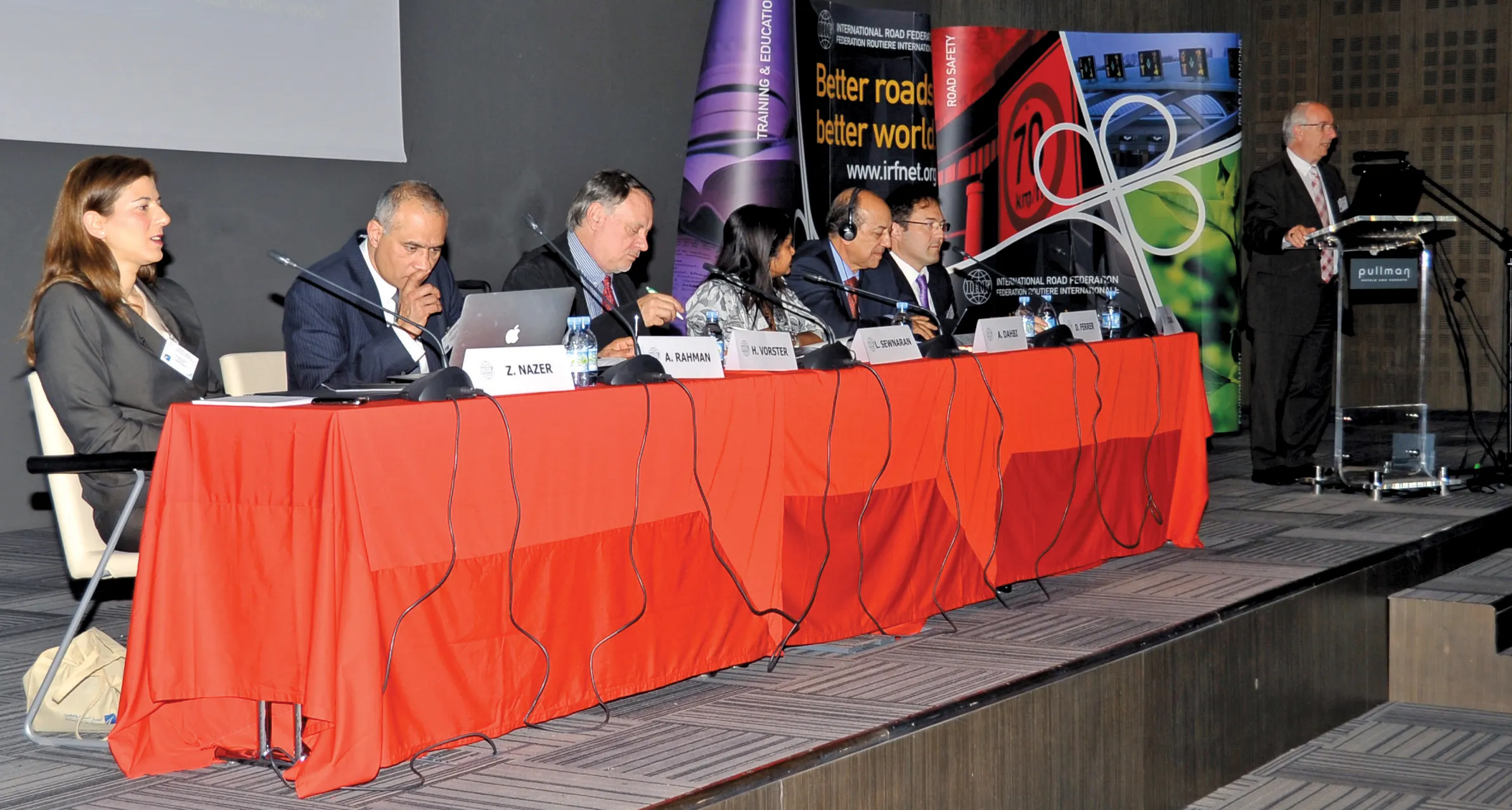New IRF course will support informed decision-making. The electronic toll collection (ETC) market is characterised by a diversity of solutions and systems which are frequently based on legacy developments addressing different technical and regulatory criteria. For national road agencies considering the deployment of ETC systems, this diversity of solutions means that comparing relative whole-life costs and strengths is a daunting task.
Tolling related technologies have made tremendous progress over the
June 8, 2016
Read time: 2 mins
RSSNew IRF course will support informed decision-making
The electronic toll collection (ETC) market is characterised by a diversity of solutions and systems which are frequently based on legacy developments addressing different technical and regulatory criteria. For national road agencies considering the deployment of ETC systems, this diversity of solutions means that comparing relative whole-life costs and strengths is a daunting task.
Tolling related technologies have made tremendous progress over the past decade, and today developing and implementing a nationwide solution presents fewer technological risks than was the case 10-15 years ago. Additionally, the technologies are able to make use of ever greater performance from mobile telecommunication networks which make operational processes such as online registration and account top-up far more straightforward.
Moreover, capital and operational expenditure remain a significant hurdle for many road agencies. The decision about which technology to adopt is often informed by the number of segments to be tolled, the type of road infrastructure, the targeted type of vehicles and their volume, and the expect-ed scalability of the system. It is therefore essential for road agencies to carefully consider the system they want to have in place prior to large-scale investment decisions.
In response to these challenges, IRF is introducing a new training seminar which will be delivered in Kuala Lumpur, Malaysia, on September 12th-15th, 2016. The principal objective of this new course is to provide highway agencies and other road professionals with a detailed understanding of those electronic tolling solutions that are available at the current time, and those that have potential for the near future. Those solutions will be placed in the context of their real world deployment across different types of schemes, as well as the applicable charging and enforcement solutions available to network managers. At the end of the course, participants will have been exposed to selected ETC schemes at different stages of maturity and representative of the diversity of the market as a whole.
The electronic toll collection (ETC) market is characterised by a diversity of solutions and systems which are frequently based on legacy developments addressing different technical and regulatory criteria. For national road agencies considering the deployment of ETC systems, this diversity of solutions means that comparing relative whole-life costs and strengths is a daunting task.
Tolling related technologies have made tremendous progress over the past decade, and today developing and implementing a nationwide solution presents fewer technological risks than was the case 10-15 years ago. Additionally, the technologies are able to make use of ever greater performance from mobile telecommunication networks which make operational processes such as online registration and account top-up far more straightforward.
Moreover, capital and operational expenditure remain a significant hurdle for many road agencies. The decision about which technology to adopt is often informed by the number of segments to be tolled, the type of road infrastructure, the targeted type of vehicles and their volume, and the expect-ed scalability of the system. It is therefore essential for road agencies to carefully consider the system they want to have in place prior to large-scale investment decisions.
In response to these challenges, IRF is introducing a new training seminar which will be delivered in Kuala Lumpur, Malaysia, on September 12th-15th, 2016. The principal objective of this new course is to provide highway agencies and other road professionals with a detailed understanding of those electronic tolling solutions that are available at the current time, and those that have potential for the near future. Those solutions will be placed in the context of their real world deployment across different types of schemes, as well as the applicable charging and enforcement solutions available to network managers. At the end of the course, participants will have been exposed to selected ETC schemes at different stages of maturity and representative of the diversity of the market as a whole.








